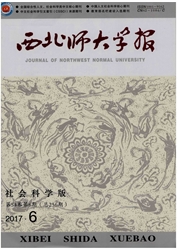

 中文摘要:
中文摘要:
《百年孤独》与《丰乳肥臀》描写的两位母亲形象,展现出不同时代、不同地域、不同文化背景下的相同母性特征。这种相同的审美范式,提供了探究作家创作心理的途径。在小说中,乌尔苏拉和上官鲁氏展现出生儿育女、忍辱负重等母性特征,这在一定程度上源自人类集体无意识中的大母神原型,浓缩了在父权文化为中心的时代,母亲优秀的品德及艰辛的命运,体现出相同的母性特质。而她们作为家族主导人物和没有出路的生存特征,则源自男性作家潜意识中的父权文化意识,这种意识将女性的价值功能囿限于家庭母亲角色,使其既有主导家庭事务的积极力量,但又不能过于强大和超越家庭事务。总之,乌尔苏拉和上官鲁氏是男性作家对传统母亲角色定义的理想呈现,显示了男性作家对这一身份的认同与赞美。
 英文摘要:
英文摘要:
The two images of mothers in One Hundred Years of Solitude and Big Breast and Wide Hips showed the shared characteristics of motherhood at different times,and in different territories and cultural backgrounds. This common aesthetic paradigm offered an approach to the study of the writers' psychology. In both novels,the mothers who swallow humiliation and bear heavy loads of life in raising children are a reflection of the archetype of the Great Mother in the collective unconsciousness of human being. Their virtuous characters but harsh destinies in the patriarchal society embody shared motherhood characteristics. However,despite the leading role they play in family,mothers live a life of no hope,which originates from the male writers' sub-consciousness of patriarchal culture. The values of women are limited to families where they play positive role in family affairs,but cannot go beyond families. In a word,they are the ideal presentation of the traditional mothers who are defined,accepted and praised by male writers.
 同期刊论文项目
同期刊论文项目
 同项目期刊论文
同项目期刊论文
 期刊信息
期刊信息
